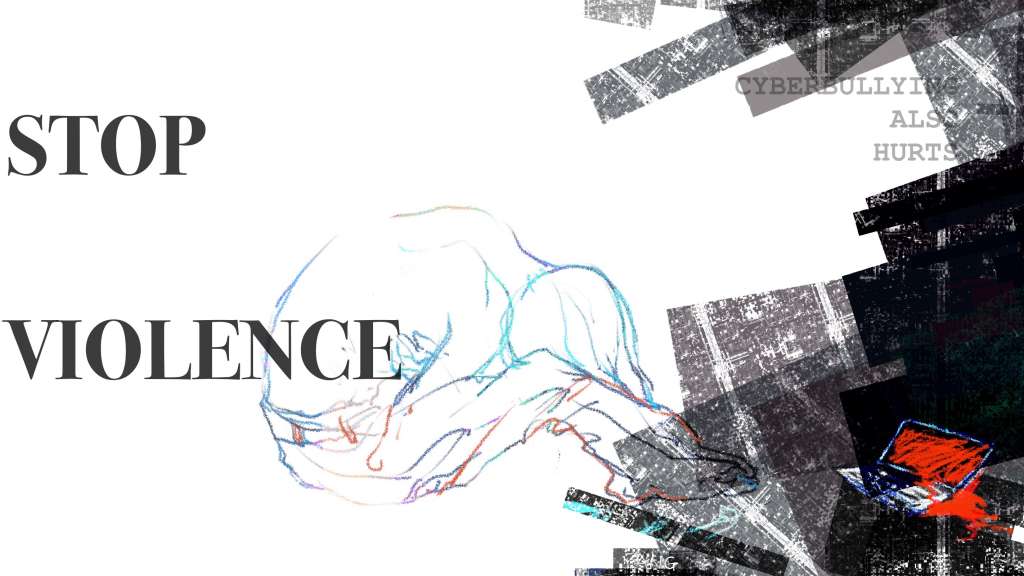
September 21, 2020
The virus takes lives away, and so does the cyberbullying. In the year of 2020, while the face-to-face contact is lessened, the online social interaction has drawn more attentions than usual. On May 23, there was one death report that attracted people’s attention: A 22-year-old Japanese wrestler was died -- not because of corona -- but as a victim of cyberbullying.
As an excellent female wrestler and member of the popular reality TV show “Terrace House”, Hana Kiruma was facing more challenges and pressure – simply because of her female identity. She was called “gorilla” and criticized for her dark skin and lack of femininity. As a young girl, she showed “too strong” personality, as being out-going is not considered as a female virtue in traditional East-Asian value.
When she was still alive, she stated very day she would receive up to 100 messages from her haters, some of which asked her to go die. Finally, she was suffocated by these hate messages and ended her own life, just as told by these haters.
In response to Kimura’s death, Japan’s Liberal Democratic Party (LDP) discussed proposals for a law against anonymous internet trolls by requiring the internet providers to disclose their information and show it to the public.
Where ends: Why is it always there?
Nowadays, with the slogan “internet is the future”, online communication consists an important part of our social life (and for some people it even consists of their whole social life). It is commonplace that we write comments to present our ideas, and we also receive online comments from others. But we may find some comments ridiculous, or even with malice from the some strangers.
That is the online environment: we have the chances to interact with anyone, whether he or she is a star or an elementary school student. People can easily influence others across the boundaries of time and space.
Therefore, with the low cost of abusing others, cyberbullying happens all the time, especially when internet-users feel themselves “empowered” to influence others. Some Netizens will abuse such right of freedom speech. For example, when they do not like someone, they leave vicious remarks to “show their attitudes”, or when they are provoked, they dox normal people and spread their personal information (which probably will lead to the social death or even physical death of the victims).
Take actions: Why is it so difficult?
The worst part about cyberbully is that when the cyberbullying becomes a collective act, the abusers will not realize it is their fault who hurt the victim. As Voltaire said: “No snowflakes in an avalanche ever feels responsible.” Cyberbullying is always majority-to-minority violence and abuse. When the question is asked: “Who should be responsible for a cyberbullied victim?” The abusers always succeed in evading responsibilities, as they are part of “the public”.
Online anonymity is another reason why the haters can attack so recklessly. In fact, sharing ideas online anonymously was supposed to be a good way for those who are too shy or have few opportunities to speak in public to vocalize their ideas. But many people simply use it as a tool to attack people they have never met before, especially those they do not dare to call names when exposed with real names.
The new law Japanese government recently enacted is exactly aimed at strictly control the anonymous Netizens’ speech. Although there is To create a better online environment, abusive senders should pay the price.
Cyberbullying in Japan: Will the Country Ever Find a Solution to This Ongoing Abuse?
https://thediplomat.com/2020/06/cyberbullying-and-the-tragedy-of-hana-kimura/
Cyberbullying and the Tragedy of Hana Kimura
https://thediplomat.com/2020/06/cyberbullying-and-the-tragedy-of-hana-kimura/



I really liked this blog post! It is challenging to implement laws when people don’t feel bad for cyber-bullying, since they are disconnected from the person. When I lived in Japan, someone at my school actually went through a similar experience and ended up taking their life as well. I am always reminded to be kind to others.
Iz thank you for commenting^ ^Yeah the fact is most people forget the manners when they are online, and some people are much more aggressive and ruder when they share the opinions online than offline, I know some people who are polite in front of people but show much malice and abuse others on the Internet, behind the screen. Their two faces are so different as if they have personality disorder😅 when they are facing the screen instead of real people, they take less consideration of the influence of their words. So sad to know you have known someone who have suffered from the cyberbullying, such experience really teachs us to be always careful with our words, which sometimes kill.
This article nicely summarizes the outline of the cyberbullying with the example of a very sad case we’ve experienced on May. Recognizing the complicated structure of cyberbullying in Japanese online environment, I do not think the newly enacted law would be really effective to improve the situation, but it was at least good (not good at all though) Japanese took cyberbullying seriously on May because of the incident of Kimura and it led some discussions. Sadly though, most people already forget the incident and serious debates seems not be continued any more, which always happens in Japanese society. Indeed, the one of the most dangerous things in all times is indifference: in this case, sender’s indifference to the feelings of the receiver of your message, sender’s indifference to moral virtues as a person and societal indifference to this matter. To be honest, I also almost forget this incident due to other heavy things I (we) have experienced this year, but your blog post reminds me of its danger and I really appreciate your blog right now.
Thanks for discussing this matter.
I also like your aesthetic of your blog post, btw!! (^^)